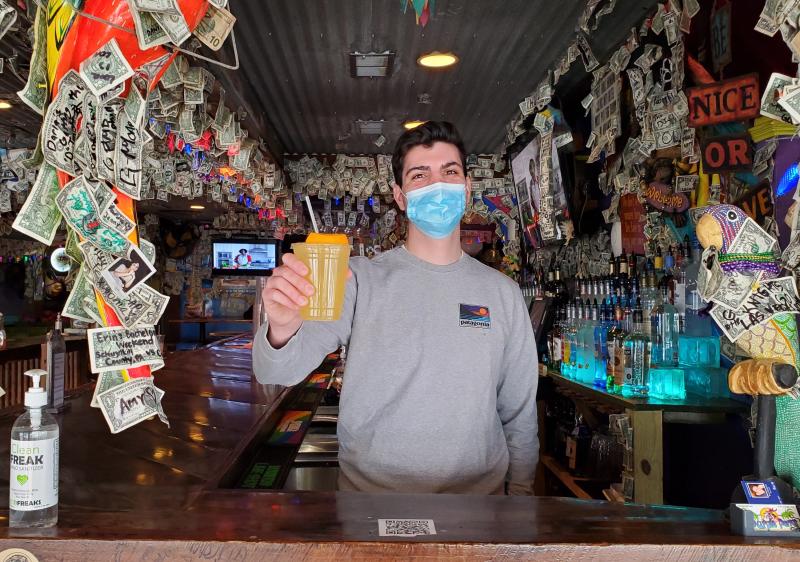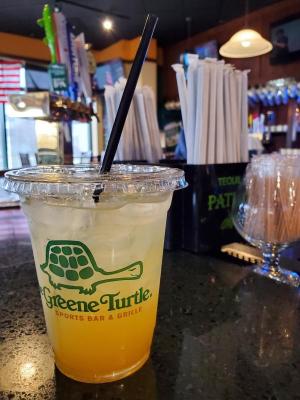To-go drinks, outdoor dining extended through March 2022
Jobs lost, businesses closed, expansions delayed. As an industry, there haven’t been many bright spots for restaurants over the past year due to COVID-19 restrictions. However, one bright spot has been a temporary change to state law allowing outdoor dining and to-go alcoholic drinks for restaurants with valid on-premise licenses.
Instituted in spring 2020, those changes were set to expire at the end of this month, but a piece of legislation waiting for Gov. John Carney’s signature will extend the benefits through March 2022.
The extension has been met with a positive response from members of the restaurant industry.
Mike Venanzi, owner-operator for Greene Turtle in Lewes and Rehoboth Beach, said the ability to sell alcohol to go has been a vital lifeline to success. Any additional services that can be offered to make the guests’ experience more memorable is welcomed, he said.
“It has been a welcome addition to our increasing to-go business that has been a real benefit,” said Venanzi, in an email March 23.
Steve Montgomery, owner of the Starboard in Dewey Beach, said he was glad to see the services extended. It’s helped businesses recoup some of the losses and reminded everyone how enjoyable it is to sit outside when eating, he said.
“It’s been awesome for the whole state,” said Montgomery.
Carrie Leishman, Delaware Restaurant Association president and CEO, said no other business sector has been more economically impacted than neighborhood restaurants. She described the outdoor dining and to-go drinks as a lifeline to help restaurants survive, but it has also become very popular with consumers.
“Ordering a margarita with our tacos-to-go or dining alfresco at our expanded outdoor spaces are some of the silver linings our community has enjoyed coming out of this pandemic,” said Leishman, who thanked the state’s legislators, especially Speaker of the House Rep. Pete Schwartzkopf, D-Rehoboth Beach, who is the primary sponsor of the legislation extending the services. “We are grateful to the speaker and to all the elected officials who voted for the passage of this bill that directly helped the industry survive by allowing one more year to help recoup some of the losses they have endured.”
Sam West, a manager at Rehoboth’s Purple Parrot, said the extension will be good for customers who are still nervous about eating out in public.
“It’s definitely helped with sales,” said West, adding he would like to see the change become permanent.
Venanzi joined West in saying he hopes the changes become permanent.
“We hope we can keep these services even after the pandemic subsides,” he said. “I believe the community sees it as a welcome addition to our services.”
Looking to prevent restaurants from becoming package stores, there have been limitations placed on the amount of to-go alcohol that can be sold to a customer by a restaurant in one day. An amendment added to the bill says a restaurant is not allowed to exceed three 750 ML bottles of wine, one case of beer and one liter of spirits per customer per day.
The bill also allows the state’s Alcoholic Beverage Control Commissioner to temporarily suspend a license only if the commissioner has reasonable grounds to believe that public's safety is at risk and there has been a violation of the law; it also allows the commissioner to hold hearings by electronic, telephonic or remote means.
As of press deadline March 24, the bill had not been signed into law by Carney, but he was expected to do so.













































